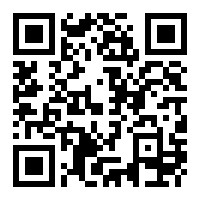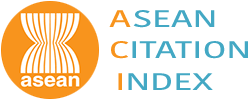Determinan Asupan Makanan Usia Lanjut
Abstract
Berdasarkan data Kementerian Sosial, jumlah usia lanjut (usila) di Indonesia tahun 2004 tercatat 16.522.311 jiwa dan 3.092.910 jiwa atau se- kitar 20% adalah usila terlantar. Nutrisi yang kurang pada usila berdampak pada kesehatan sehingga relatif mudah terjangkit penyakit infeksi dan gangguan zat gizi. Selain itu, asupan makanan berhubungan dengan depresi, jumlah gigi, gangguan gigi, penggunaan obat, penyakit, dukungan sosial seperti kunjungan keluarga atau orang terdekat, dan rasa makanan. Tujuan penelitian ini adalah mengetahui berbagai faktor yang berhubungan dengan asupan makanan pada usila. Penelitian menggunakan desain studi cross sectional dilakukan terhadap 58 orang usila di Panti Sosial Tresna Werdha Budi Mulia 01 Cipayung pada periode bulan Mei-Juni tahun 2010. Metode analisis multivariat digunakan untuk melihat faktor dominan yang berpengaruh terhadap asupan makanan. Sekitar 62,1% usila di panti sosial yang diteliti mempunyai asupan makanan yang kurang. Berdasarkan hasil analisis multivariat, makanan, penyakit, dan jumlah gigi merupakan faktor yang paling dominan memengaruhi asupan makanan pada usila.Kata kunci: Asupan makanan, lanjut usiaAbstractBase on Ministry of Sosial Welfare, the number of elder in Indonesia 2004 was recorded 16.522.311 and 3.092.910 or about 20% were negleted elders. Poor nutrition will impact on the health of the elders that directly related the infectious disease and the level of food intake. Besides, food intake is also associated with depression, the number of theet, the dental disorders, drug use, diseases, social support include the visit of the family or the people around them, and the taste of the food. The objective of study is to describe the factors that associated with food intake on the elders. This study that was conducted in Mei-June 2010 used cross sectional design. The sample that was suitable with criteria used in this study is about 58 people. The study used multivariate analysis to know the dominant factors that affected food intake. The result showed that 62,1% of elders in Panti Sosial Tresna Werdha Budi Mulia 01 Cipayung has less food intake. Based on the results, the diseases, depression, number of the teeth, and taste of the food are associated with food intake of the elders.Key words: Food intake, erderly
Full Text:
PDFDOI: http://dx.doi.org/10.21109/kesmas.v6i6.78
Refbacks
- There are currently no refbacks.































